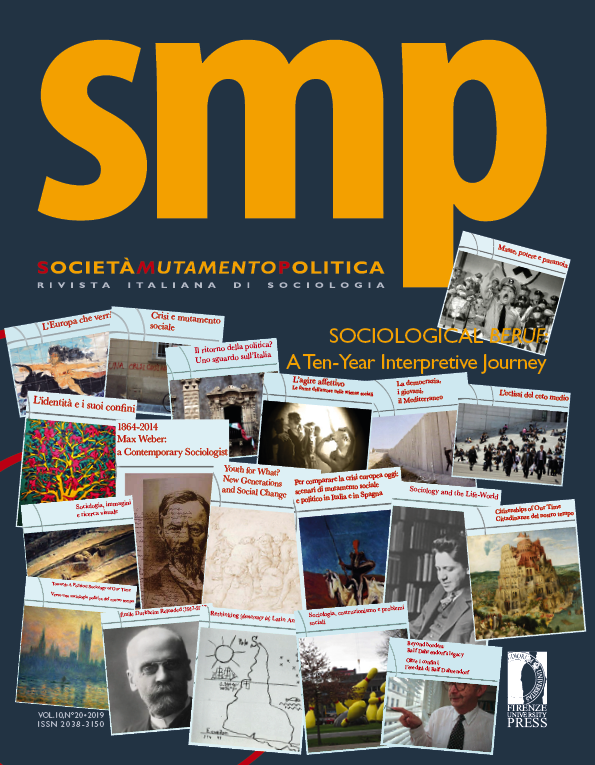Published 2020-01-16
Keywords
- Weber Max,
- Weber Marianne,
- Sociological Theory,
- History of sociology,
- Art
- Love,
- Eroticism,
- Psychoanalysis,
- Cultural history of Germany ...More
How to Cite
Abstract
This article explores the relation between life, illness and work in Max Weber. It highlights the conflicts in Weber’s family, the causes of his nervous illness, the intimate relations with his cousin Emmy Baumgarten, his mother Helene Fallenstein, his wife Marianne Schnitger, his lovers Mina Tobler and Else von Richthofen. The Weberian critique say that the causes of the family conflict are in the oedipal relation between Max Weber and his father. The thesis proposed in this article is that more relevant for the Weber’s crisis is the relation with his mother, the very Super-Ego for Weber. His choice to not marry his cousin Emmy but Marianne Schnitger is the most important rebellion of Weber in his life. And the motherly prohibitions have probably damaged his capacity to sexual capacity. On the contrary, the relations with Mina Tobler and Else von Richthofen open Weber’s life to love, art, and eroticism. This article highlights the great relevance of these personal experiences for the Weber’s works, from the sociology of music, the rationalisation process, the construction of a multidimensional paradigm of society. Aesthetics, art, eroticism, and love becoming society’s spheres just as economics, ethic, politics, religion and are all in a relative tension or conflict each one with other. And Weber use this complex model in his comparative analysis of religions, societies and civilisations.


